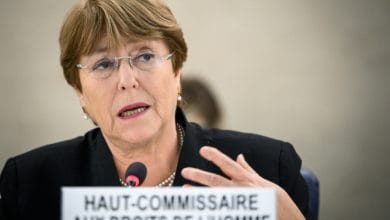
Nicaragua’s democrats deserve American and regional encouragement and support
THREE KEY dates define the parameters of Nicaragua’s continuing political crisis. The first is April 2018, the moment three years ago when demonstrators took to the streets in protest of President Daniel Ortega’s dictatorial rule — only to be met with a violent wave of repression over the next six months. That crackdown left at least 325 dead; 2,000 injured; hundreds illegally detained, tortured and disappeared; and thousands in exile, according to the latest State Department human rights report. There were still more than 100 political prisoners as of December 2020.
The second date is November 2021, when Mr. Ortega, 75, seeks to perpetuate his rule, that of his wife, Vice President Rosario Murillo, and their children via elections — which, if they are like previous ones during the Ortega years, will not be free and fair.
And the third key date is May 2021 — just a few days from now — which is the deadline for reforming the Nicaraguan electoral system that the Organization of American States gave Mr. Ortega in a resolution it adopted last October.
Unfortunately, but predictably, Mr. Ortega’s government proposed an electoral law on April 12 that would arguably cement the control he and his Sandinista Party already exercise over the country’s political machinery. The Ortega-backed plan, likely to pass the Sandinista-dominated legislature, leaves the Supreme Electoral Council under de facto control of Mr. Ortega’s party and, for the first time, puts the national police — responsible for much of the recent repression — in charge of authorizing opposition campaign activities in the public streets. This blatantly defies the OAS resolution, which called on Managua to develop “meaningful electoral reform measures,” in cooperation with opposition parties, so as to assure “a pluralistic political process leading to the effective exercise of civil and political rights, including the rights of peaceful assembly and freedom of expression, and open registration of new political parties.”
Mr. Ortega manipulates the process in part because it would be challenging for him to win a free and fair vote — given his record. That record includes not only his savage crackdown on the pro-democracy movement, but also one of the world’s worst public-health performances in response to the coronavirus pandemic. Total deaths in Nicaragua ran more than 60 percent above normal between the pandemic’s outbreak in March 2020 and August 2020, according to the Financial Times, a surge in excess mortality that belies Managua’s relatively low official covid death figures.
To be sure, differences within Nicaragua’s opposition could make Mr. Ortega’s job easier; no fewer than 10 prominent figures have already declared their interest in running for president this November. There is still time, however, for them to forge the united front needed to take advantage of the political space even a tilted election could create. In any case, we are loath to criticize those who would step forward to challenge what has turned into arguably Central America’s harshest dictatorship. To the contrary, Nicaragua’s democrats deserve U.S. and regional encouragement and support. Given their country’s election-year calendar, the sooner they get that backing, the better.
